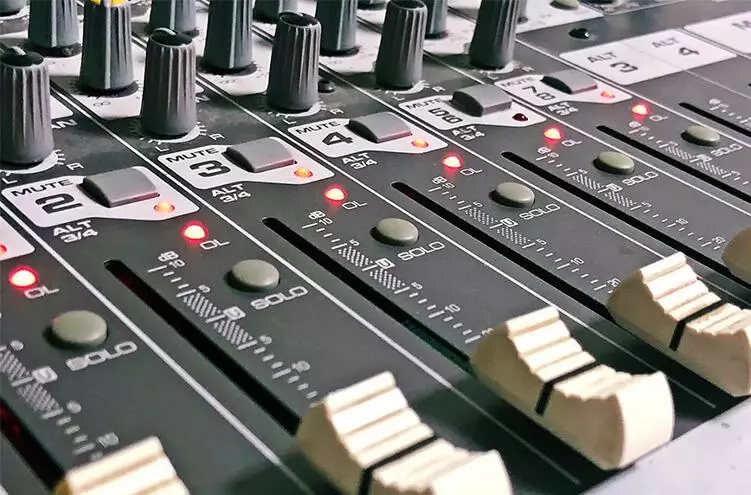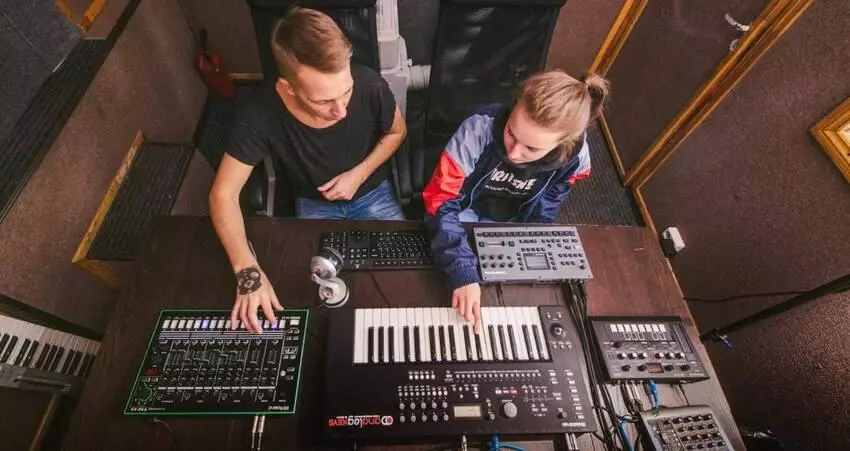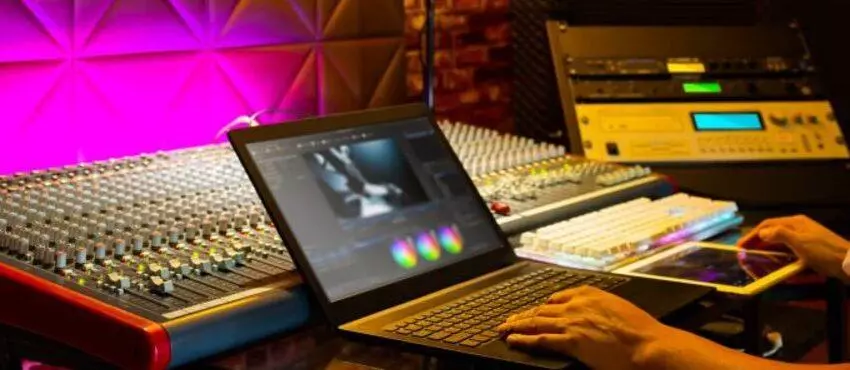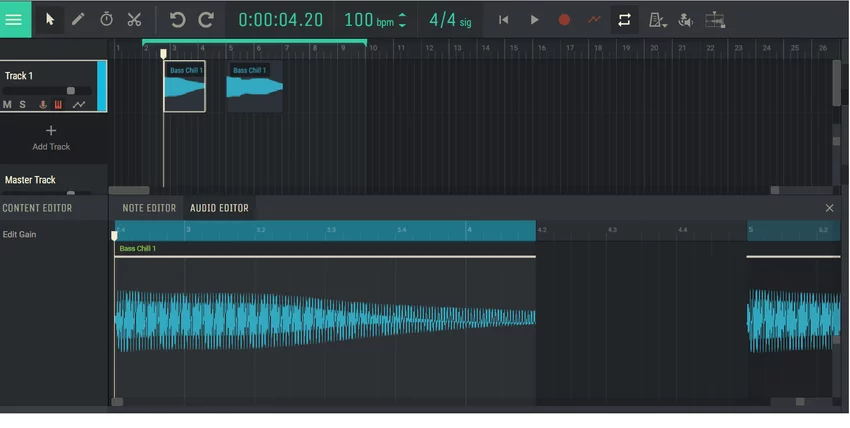Mastering in music

The ultimate stage in the production of an audio track is mastering. This step encompasses enhancing the sound quality, achieving consistency throughout the entire album, and preparing tracks for active distribution by adding final compositional touches. Are you interested in gaining more knowledge about mastering? If so, we extend an invitation to read this comprehensive review.
What is mastering?
As part of the audio mastering process, the initial source files are assessed and adjusted as needed, followed by editing or re-editing of specific parts of the composition. Many sound engineers utilize mastering alongside stereo recordings, and while there are no standardized procedures, there are recommended practices for audio mastering.
Once all individual tracks are prepared, they are arranged in a specific sequence, with transitions and pauses added, and any necessary enhancements made. Compression and equalization are applied to the source files, with specific settings tailored to different media types, taking into account the listener, media format, and sound reproduction. In general, it is recommended to:
- To prepare audio for cassettes, it is important to incorporate high frequencies and utilize maximum compression;
- To ensure full monophonicity for low frequencies when mastering audio for vinyl, it is necessary to make low-frequency cuts;
- When mastering audio for CDs, particular attention is given to achieving digital silence at the beginning and end of each track;
- The RMS marker, which measures dynamic volume, is of utmost importance when mastering audio for radio broadcasts.
Audio mastering takes place in specialized control rooms, which are equipped with standard format audio monitors, and the process is carried out by trained sound engineers. Two main types of mastering exist: analog and digital, with each serving different purposes.
The comparison between digital mastering and analog mastering
Classical mastering, also known as hardware mastering, involves processing audio recordings through the use of band filters, equalizers, precision compressors, and other specialized equipment. This analog processing imbues the sound with a unique charm, making it particularly well-suited for editing tape recordings. Analog mastering typically involves recording the final product onto a digital medium, followed by formatting and PMCD recording.
Remastering, an alternative to classical mastering, involves the use of a digital virtual environment for editing audio tracks. Unlike hardware analog mastering, remastering requires modest investments in equipment and resources to equip a studio with the necessary tools. In some cases, digital mastering involves the transfer of material from one medium to another, with further changes made to the sound through the use of separate digitalization devices.
How do mixing and mastering differ from each other?
The result of the creative process in electronic music is usually a set of tracks in a DAW. A multitrack composition may consist of various elements such as percussion, instrument parts, basses, atmospheres, vocal inserts, and SFX. In professional recordings, the number of tracks can reach a hundred or more, each with high-quality sound.
Novice performers often struggle to produce tracks that meet their own creative vision and the expectations of their listeners. Mixing and mastering are two distinct processes that can help achieve the desired result. Although often confused, they are completely different concepts. Mixing is the first technical refinement of the track and involves adjusting the placement of samples in the project timeline to achieve adequate audibility of all the instruments in the track. Professional mixing goes beyond this and includes working with the dynamic parameters of different instruments, their spectra, and other characteristics.
Mixing also involves panning and creating the illusion of sound being in the air right in front of the listener through the use of reverbs with presets or manual selection of parameters. Spectral and dynamic adjustments are also made to ensure the final result matches the author’s vision.
Mastering is the final step in the production process, which focuses on the overall sound quality of the track. It is essential to ensure that the track sounds good in different acoustic systems. The difference between mixing and mastering is that mixing focuses on adjusting the individual elements of the track, while mastering takes a more holistic approach to the sound.
Myths about mastering
Misconceptions abound when it comes to the term “mastering,” which can hinder a clear understanding of its meaning. However, if you’re interested in setting things straight, then you’re on the right track. Contrary to common belief, mastering is not simply about increasing volume or making a track sound cooler. Rather, it involves audio engineers making precise changes to the audio signal, using tools like compressors and equalizers to polish the track and achieve optimal sound quality.
Depending on the source material and the specific goals of the project, processors and noise suppressors may also be used to narrow or expand the stereo base. Once the mastering process is complete, the compositions may be arranged in a specific order, supplemented with transitions or pauses, and combined into a cohesive album or single.
It’s important to note, however, that mastering does have limitations and specific functions. Understanding these will help to dispel any misconceptions and ensure that the final product sounds great on all types of equipment. Ultimately, mastering plays a crucial role in the music-making process, allowing artists to achieve their desired sound and create high-quality recordings.
Mastering can fix anything
Many newcomers to the music production industry hold the misconception that mastering can fix all issues with a track, but this is not necessarily the case. It is important to recognize that there must be a balance between the quality of the source material and the expectations for the mastering process.
It is not acceptable to compromise on the quality of the source material and expect mastering to work miracles. Instead, it is important to prioritize achieving a high-quality recording from the beginning of the process. While mastering can certainly enhance a track and address minor issues, it is not a solution for major flaws or problematic source material.
Therefore, it is crucial to approach mastering with realistic expectations and a focus on achieving the best possible recording from the outset, rather than relying on mastering to fix all issues at the end of the process.
The track gets louder
It is important to note that technique in music mastering is not solely focused on increasing the volume of tracks. While it is true that the mastering process can bring the volume level of a mix to a certain level, this is not the main goal nor is it an end in itself.
The primary objective of mastering is to achieve high-quality sound transmission across various types of media. To achieve this goal, sound engineers use various tools and techniques to fix audio imperfections, enhance sound quality with equalizers and compressors, add fades, and adjust the sharpness of the sound. The ultimate aim is to achieve a cohesive and uniform sound across all tracks in the project.
In summary, while volume is an important aspect of the mastering process, it is just one of many factors that must be considered to achieve high-quality sound transmission across all types of media. The use of various techniques and tools is crucial to ensure that the sound is polished and uniform across all tracks.
Is this a lie?
Mastering is simply a tool for processing audio. Its utilization varies among sound engineers – some use it actively, while others rely on situational factors. The equipment employed in the studio also depends on personal preferences. Ultimately, mastering is just an additional feature and not the secret to achieving perfect audio recordings.
Currently, there exist numerous recording studios that specialize in mastering. Each studio has its unique equipment list, work experience, and pricing structures, ranging from moderate to exorbitant. The processing carried out by these studios is dependent on their technical capabilities and experience.
Everything can be done independently using plugins
Audio mastering is often considered a daunting task that requires a plethora of equipment, experience, and a well-equipped workspace. While this may be a popular belief, it is not entirely true. The success of audio mastering is heavily reliant on the decisions made during the process, rather than the software or hardware used. When we send our tracks for mastering, we are essentially paying for the expertise and experience of the sound engineer, as well as the availability of necessary equipment and skills. It’s important to remember that even the most advanced plugins can only be effective in the hands of a professional, and cannot work miracles on their own.
The louder the better
Achieving a proper balance in volume is crucial in music production, as the integrity of the composition can easily be compromised if the volume is too high or too low. Simply increasing the volume through compression without considering the musical aspects will result in uninteresting and cramped tracks. Additionally, each genre has its own specific loudness standards that should be taken into account and followed. It’s worth noting that listeners have the ability to adjust the volume according to their preferences. Therefore, loudness should not be equated with quality during the sound production stage.
Analog equipment is a must
The saying “so many men, so many minds” can easily be applied to the world of sound engineering. Each sound engineer has their own unique set of preferred tools and techniques that they utilize in various situations. Some prefer analog devices, while others prefer digital, and some even use a combination of both to achieve the desired outcome. The key factor in this process is the engineer’s knowledge, experience, personal preferences, and their ability to assess the situation and make informed decisions in real-time.
Do you need perfect hearing?
While mastering music is certainly a valuable tool, it is not the most crucial factor to consider. It’s far more essential to understand the information that the ears transmit to the listener’s brain. In reality, anyone can learn to master music as long as they have the appropriate equipment and a desire to learn.
No mastering needed
The necessity of mastering a track is dependent on various factors. Some users may assume that if a track has been mixed to a high standard, mastering is unnecessary. However, this is not entirely accurate, as the need for mastering is determined by the goals of the project and the musician’s preferences.
In certain situations, such as editing a video for YouTube or social media, mastering may not be a crucial element. Additionally, if the track already meets the desired standards and sounds pleasing to the listener, it may not require further mastering. Nonetheless, experienced sound engineers are capable of identifying areas in which a track could be enhanced, so it’s advisable to listen carefully to their recommendations.
Conclusion, what is audio mastering?
Mastering is a critical phase in music production, in which a reference sample, known as the master copy, is created for replication purposes. While the decision to include this step in the production process is up to the individual, experienced sound engineers often take advantage of every available opportunity to enhance the final outcome. It’s essential to adhere to the established protocols and guidelines to ensure that the final product meets the desired standards.










